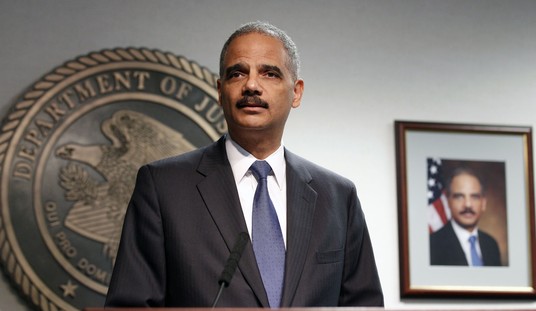For the first time in 50 years, the US will send its Secretary of State — our highest-ranking diplomat — to the nation of Burma, whose military junta had been shunned by Western nations since seizing power in 1962. Hillary Clinton’s trip has the blessing of Burmese democracy activist Aung San Suu Kyi, who spent most of the last two decades under house arrest for having the temerity to win a majority in the 1990 elections, a result wiped out by the junta. The Washington Post reports that the move may help the US gain an edge on China in south Asia:
President Obama made the announcement Friday shortly after he began a series of meetings here with Southeast Asian leaders about regional security, including disaster relief. Obama was scheduled to participate in a meeting of the Association of Southeast Asian Nations (ASEAN), whose chairmanship recently was awarded to Burma, also known as Myanmar.
Burma’s military rulers, who have held power since a 1962 coup, have taken a hard anti-democratic line, cracking down on opposition leaders including Nobel Peace Prize laureate Aung San Suu Kyi, who had been on house arrest for years.
But she was freed last year, and hundreds of other political prisoners have been set free since in a sign that Burma might be signaling an opening to the West as a hedge in its relationship with China.
The New York Times reports on the same trip, but uses the junta’s name for the country, Myanmar:
Daw Aung San Suu Kyi, Myanmar’s most prominent democracy campaigner, announced on Friday that she would rejoin the political system of the military-backed government that persecuted her for more than two decades.
In recent years, China has been one of Myanmar’s largest trade partners, lured by Myanmar’s bountiful natural resources. Myanmar, in turn, has relied on China for much-needed investment, partly to mitigate the effects of Western sanctions.
In September, Myanmar angered the Chinese government by suspending a Chinese-led project to build a hydroelectric dam in northern Myanmar. The move created a rare rift between the countries, which have been tightly allied over the past two decades.
The decision to send Mrs. Clinton came shortly after Myanmar took another step away from its diplomatic isolation on Thursday when its neighbors agreed to let the country, which had been run for decades by the military, take on the chairmanship of the Association of Southeast Asian Nations in 2014.
Myanmar has long coveted the rotating chairmanship of the organization, known as Asean. The country renounced its turn in 2006 in the face of foreign pressure over human rights abuses.
Perhaps the first issue we can settle is what to call the country. The junta changed it to Myanmar in 1989, but the State Department refuses to use it officially, in support of democracy activists there who reject the change. The rapprochement between Kyi and the junta might settle the name issue eventually, but in the meantime, it’s probably best to continue using Burma.
Likewise, if Kyi supports the new American initiative and believes it will help speed change in Burma, then the Obama administration is doing the right thing in expanding diplomatic contact and recognition. If we can pull Burma closer to the West and away from China, then it will have some strategic worth for us as well, and especially if we can break the link between Burma and North Korea. That may well be the real strategic goal, and anything that further isolates Kim Jong-il will benefit the US.
However, we should tread carefully. The junta may want to entrench itself by claiming legitimization with new contacts in the West, and that could mean an eventual backslide on political engagement and free opposition. Kyi would be the best gauge of that, of course, and her ability to continue her activism should be the basis for our new efforts in Burma.








Join the conversation as a VIP Member